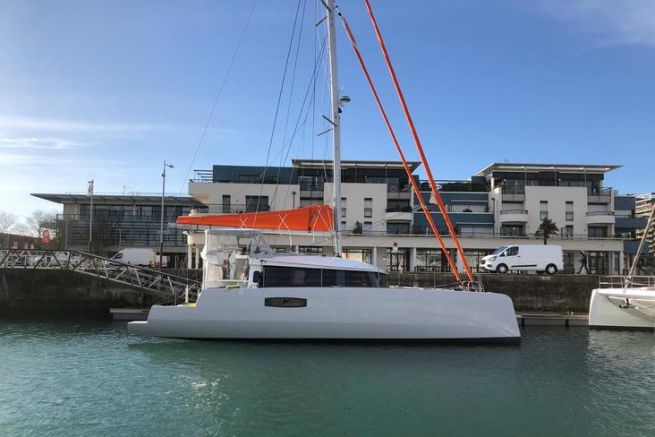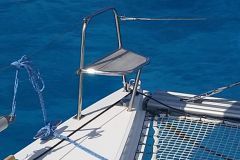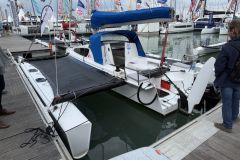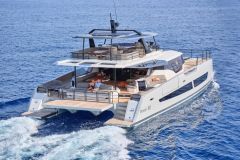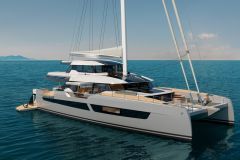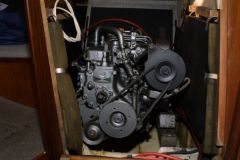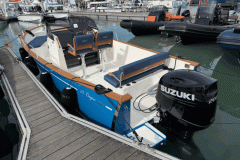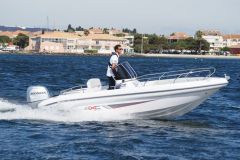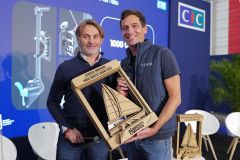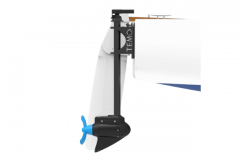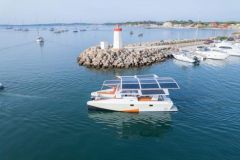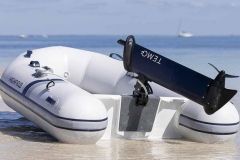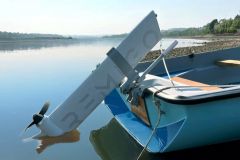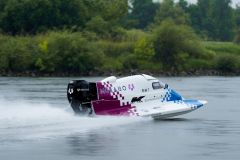Living in comfort and maximum autonomy
Philippe Baudet is the proud owner of a Neel 51 hybrid electric boat called Make Sense. Just retired, this Luxemburger decided to leave his life on land to live in autonomy and comfort on his boat. He worked on this project for 6 years, in collaboration with several actors: Boatin'France, the official Neel Trimarans dealer, a project manager, an engine manufacturer and the Neel shipyard.
"The idea is to live in comfort and with maximum autonomy. I want to go to marinas as little as possible, to connect as little as possible, to go in freedom where I want, to get out of the hectic life system. The boat project had been there for a long time, but I wanted to add a touch of engineering, of development, to give a meaning to my project. Hence the name I gave to my boat "Make Sense"" explains Philippe.
Hydrogenated electric motors
Driven by the desire to accompany the beginnings of electric technology, Philippe decided to equip his trimaran with electric motors. At first, for the silence and to avoid emissions. Finally, 3 years ago, he changed his project and supplier.
"We were talking about hydrogeneration, to make power while sailing. It made a lot of sense. Unlike an electric car, here we only use the wind. We just lose a little bit of speed, but sailing is also about taking your time says Philippe.
He therefore chose to equip his boat with two OceanVolt SD15 Servoprop motors with 15 kW each. The installation was done in conjunction with the shipyard, by intervening directly in the molds to insert the two bases in two monolithic areas. The central hull was also refitted to accommodate the 16 batteries. The boat then left the shipyard unpowered to install the two electric motors. The project manager made sure to keep the same weight estimate for the boat.
"Since the boat is quite large, and the Servoprop is limited to 15 kW, instead of the diesel engine I installed two slightly angled engines. This has two advantages. Redundancy, if one engine fails, the second can take over. And it represents twice as much hydrogenation" explains Philippe.
On some test sails, the Neel 51 starts to generate electricity from 4 knots of speed. "At a cruising speed of 8/10 knots, I can recharge my battery bank in 7 hours."
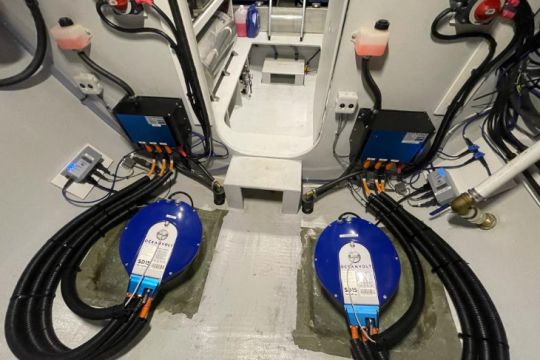
A generator for safety
For safety, the Neel 51 is nevertheless equipped with a 48 volt diesel generator.
"In the event I need to stress my engines, I won't have the capacity to run them 24 hours at full power. The diesel generator can take over. It's not an innovation, but we've managed to make something coherent and meaningful. If I were to sail in windless water with the engines at full power and generators, I would consume half as much as with current thermal engines. This means that a hybrid solution offers a first advantage: doubling the range and dividing the fuel costs by two. That's huge. It makes sense from an ecological, comfort and economic point of view develops Philippe.
In addition, Philippe has 2000 watt solar panels. An element that he could do without, but that he uses as a supplement.
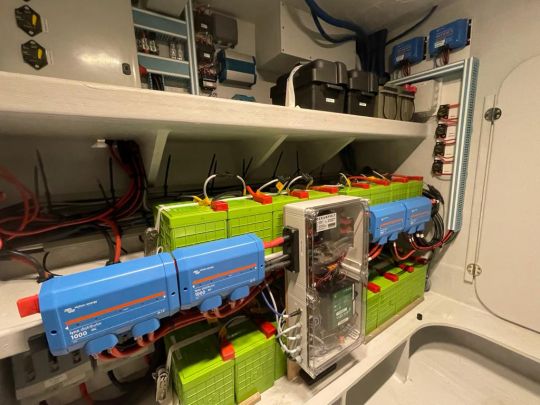
Optimal performance and savings
"For a month, I stayed with another boat in the port of La Rochelle without plugging in at the quay. I recharged my battery pack in 20 minutes and it only cost me 2.50 euros. It's a 50-foot boat, equipped with all the comforts: induction cooker, American fridge, ice maker, washing machine, dryer, dishwasher, diving compressor, watermaker... I can live one week in autonomy at anchor thanks to all this electrical system.
There is a real interest in the generator and hybridization system, but it must be made up of a chain of coherent elements. We must preserve and optimize the yield. If I spend only 2,50 euros for a week, it is because the equipment is in 48 volts, the generator, the battery park and the engine. So there is no loss due to the transformation" says Philippe.
For even more ease of use, Make Sense is equipped with a new type of rectifier that varies the engine speed according to the voltage that the batteries can accept.
"Everything is interconnected. This has a significant benefit in terms of usability. It's transparent and automatic. I'm under sail, I need the engine, I turn it on, it draws from the batteries, and when the batteries are empty, the generators take over." explains Philippe.
In terms of cost, this propulsion system leads to an additional cost of 3% compared to a boat equipped with an internal combustion engine, but with a consumption reduced by two.
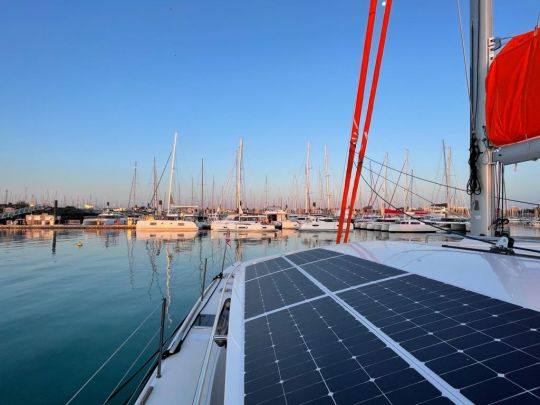
A successful bet
"For the moment it's a winning bet. The profile of my future life is to stay at anchor far from the tourist areas, to enjoy my boat in autonomy by making my own water and electricity. When I need energy and I don't want to use fuel, I'll go sailing for several hours to gain a week of autonomy without spending anything.
I'll also have to make polars, because they are not the same as for wind. It's about fluids, underwater, which takes into account the current, the waves... There's a lot to exploit. It makes a lot of sense. It's an eco-friendly project." concludes the owner.
The boat will now reach Le Havre for a test sailing from La Rochelle and will be presented in preview of the 1 er to May 9 before being offered for rent in Corsica this summer 2021.

 /
/ 